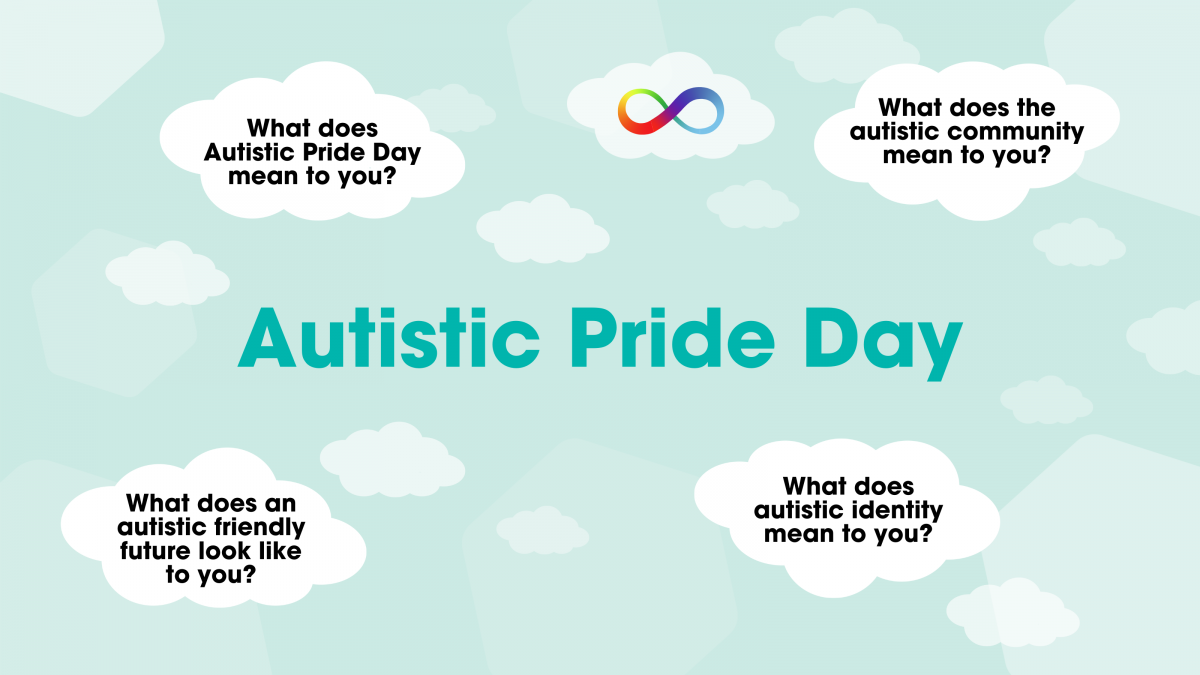What Autistic Pride Day means to our staff
Posted on
Continuing with our #AutisticPrideDay celebrations, we asked some of our Amaze-ing autistic staff about what Autistic Pride Day means to them.
Jackie
“I’m Autistic and . . . . . . . loving it.
Autistic pride day is an opportunity for the Autistic community to come together and celebrate our identities and culture. It’s an opportunity to focus on the positives being Autistic and making that visible to all.
The Autistic community provides a space where we can hear and understand each other. And it provides a basis for disruption of the entrenched stereotypes and non-autistic view of autism. Autistic identity means me. I’m out and proud. I view the world from an autistic brain and I delight in that.
The future will be much more autistic friendly as we raise our voices and demand change. Autistic people won’t be so disabled by the misunderstanding of autism. It is happening now. We are creating that future.”
William
“Autistic Pride is the most colourful and diverse day of the year!
The Autistic community has so many beautiful people, so much talent and so much potential!! This community will be the start to the change we need as a society.
My Autistic identity was a difficult thing to accept, I used to not embrace who I was, but then I learnt the only reason I didn’t accept myself was due to the bias’s, attitudes and stereotypes that were displayed when I was being raised. I was fortunate enough to have a really supportive family in my upbringing — public society on the other hand was a whole challenge in itself.
An Autistic friendly future is where people will not look at us differently, offer support if we are obviously struggling, and professionals accept that we are part of their community and educate themselves on the up to date norms.”
Nesceda
“Autistic pride means more to me than awareness, acceptance or appreciation ever will.
For many autistic people, the month of April can be all about explaining yourself to others, and it gets tiring. Autistic Pride Day is just simply being your authentic, honest, autistic self.
I am proud to be autistic. I feel fortunate that I was aware of my identity from a young age, but I haven’t been fully proud of my identity until adulthood.
The autistic community taught me about the importance of embracing neurodiversity, and my wish is that the world will see autistic people for who we are without trying to change us. We must encourage the world to listen to autistic voices, particularly when it comes to talking about our lives and identities.”
